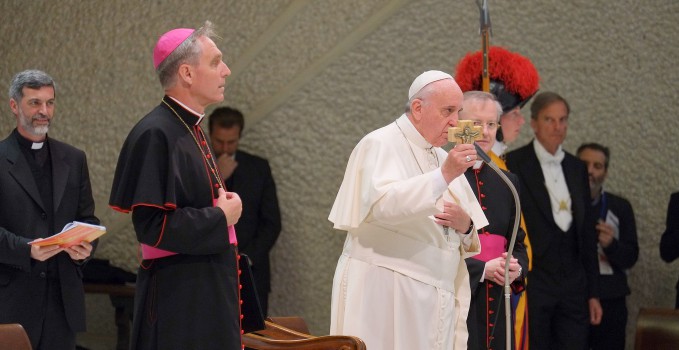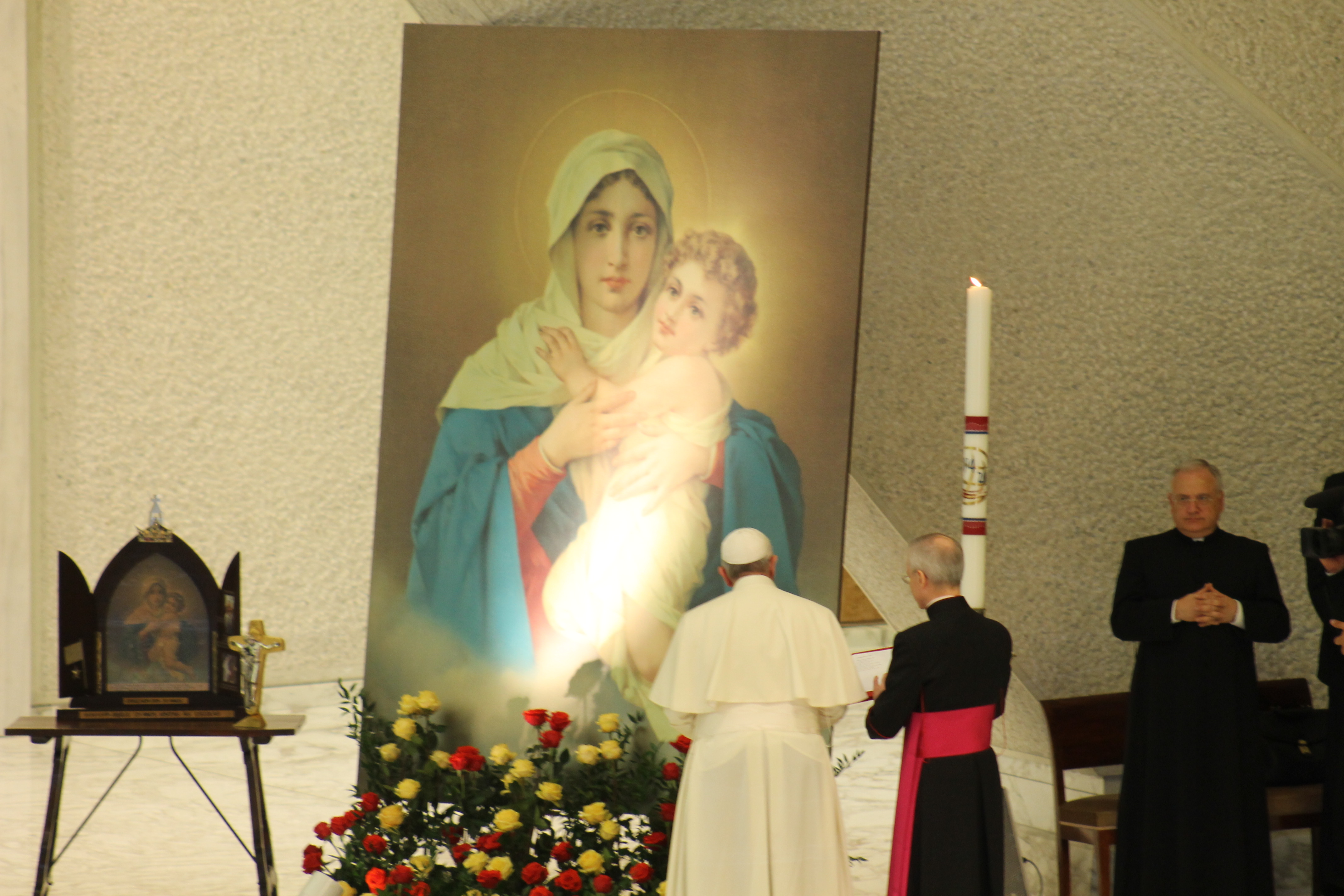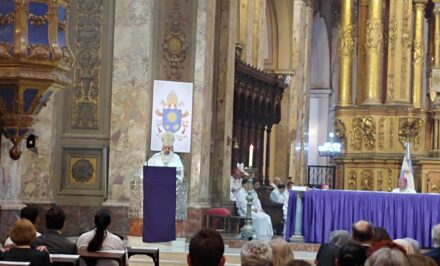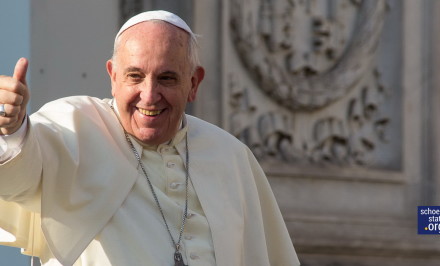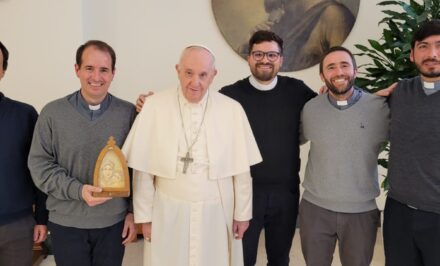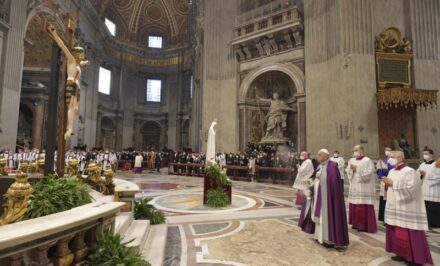by Sarah-Leah Pimentel •
As we bring to a close this series on Pope Francis’ message to the Schoenstatt Family, we reflect on his encouragement to carry forward Schoenstatt’s mission for the Church, the last of the five areas of apostolic activity that the International Schoenstatt Movement takes forward into a new century.
Eucharistic unity – “That they maybe one as we are one”
Pope Francis begins by speaking for the need for renewal within the Church, but I have chosen to start where he ends – with the sacraments.
The Holy Father invites us, first and foremost, to make our home in God’s presence by participating in the sacraments, particularly the Eucharist and Reconciliation.
The Eucharist, says Pope Francis, draws us into “the presence of God who renews the covenant with us.” In other words, if we allow ourselves to become one body with Christ – who himself is one with the Father – then we also become one body with God the Father and Jesus Christ.
Before his death, Jesus prays for the unity of the Church that is yet to be formed, urging it to be united just as he is united to his Father in Heaven (Jn 17:11 and Jn 17:21).
Reconciliation as a path to unity
Pope Francis says that our brokenness often stands in the way of unity. We cannot be united with each other, if we are not first united with God. Sin is what separates us from God. He, therefore, encourages us to avail of the Sacrament of Reconciliation, so that by confessing our faults and weaknesses, we can recognise and vanquish the actions of the “evil spirit that harms us” and divides us.
Strengthened by the sacraments, we are able renew our covenant of love with one another – which is also a covenant of unity – which in turn, engenders a culture of encounter. The Eucharist and Reconciliation, says the Holy Father, “lead us toward sanctity always with this culture of encounter, with this solidarity, with this creation of bonds.”
Renewal of the heart
It is in this encounter that renewal occurs, both within the Church and outside of it. The Holy Father speaks about the importance of constantly renewing the Church, but warns us that this is much more than a renewal of its form and structures. In fact, he warns us to “watch out for functionalism” and “meticulous” plans because these cause us to be “closed in, encapsulated.”
The real renewal that the Holy Father is speaking about is the “renewal of the heart.” The renewal of the heart is a transformation that results from a life of deep faithfulness and prayer. It gives us greater interior freedom to place ourselves “at the service of the other, freedom of spirit, prayer, vocation, apostolic zeal, going out.”
Apostolic zeal requires courage, especially when we feel we are alone in our struggle for transformation within ourselves and within the Church. The Holy Father, therefore, urges us to draw strength from the saints and the many holy men and women who, over the centuries, have brought about the greatest renewal in the Church. A reading of the life of the saints will show that they often came up against unimaginable barriers and their mission endured only through God’s grace.
Fr. Kentenich’s mission was Christ-centred
As a Schoenstatt Family, we need only look to Fr. Kentenich. Although he has not been canonised by the Church, we recognize him as a holy man, whose journey along the path of sanctity also brought about the renewal of the Church. His actions were not for his own edification, and in fact, he was called to offer many sacrifices for the mission to which the Blessed Mother entrusted him. Everything he did was out of love for God and the Church. This is why his sarcophagus bears the words: Dilexit Ecclesiam – He loved the Church.
This is the key: all apostolic activity should be done out of love for the Body of Christ. Primarily, Jesus is the centre of all apostolic work, echoing Pope Francis’ Jubilee message that “all the spirituality, all the charism in the Church, everything that is most diverse and rich, must be de-centred. The Lord is at the centre.” The Holy Father warns us to be careful that we don’t “de-centre Jesus Christ” while carrying out our apostolic work.
The necessary suffering of exile
We often lament Fr. Kentenich’s exile or the way he was treated by the Church, but if we look back it was a necessary period for the life of our movement. The Church is right to discern the source of a charism – to determine that it indeed derives from Christ and is not a personal charism.
In the case of Fr. Kentenich, the Christ-centred source of his mission may have been clear to those who belonged to the Schoenstatt Family, but it may not have been immediately apparent to the Church in Rome. In part, this is because Fr. Kentenich’s prophetic call for inner renewal came several years ahead of the Vatican II and the Church was not yet ready to hear this message.
But Schoenstatt’s Christ-centeredness may have been overshadowed by some within the movement who were tempted to place the founder, Schoenstatt’s pastoral methods and actions at the centre. The exile was important for the Schoenstatt Family to reflect and discern that Schoenstatt’s charism was greater than its founder and lives inside each one of us, if we truly make Jesus the source of our apostolic zeal.
How do I love the Church?
We can ask ourselves, how do we carry out our apostolic activities in the Church? Do we serve selflessly, so that our actions reveal Christ? Or are we sometimes distracted from our purpose by our pride, our need to formulate meticulous plans that consume the time and energy that could be devoted to fostering bonds of solidarity and encounter? Are our efforts driven by love?
We renew the Church when we are inwardly free to act courageously, even in the face of strong opposition.
We renew the Church each time we begin by renewing our own hearts first.
Our greatest gift is that the Blessed Mother educates and transforms us so that we can be one with the Body of Christ – the living presence of Jesus in the Eucharist as well as the Church, which is the Body of Christ present in our world today.
Therefore, we can draw encouragement from Pope Francis’ final words to the Schoenstatt Movement: “I entrust all of you to the Blessed Mother, so that she can continue to walk with you in this renewal of the covenant.”
 The book – for sale in several bookstores, at the website of Nueva Patris Chile (shipping from Chile)
The book – for sale in several bookstores, at the website of Nueva Patris Chile (shipping from Chile)
or at the Shop of the Schoenstatt Center in Memhoelz
ISBN: 978-956-246-775-9
Also as E-Book (Kindle, Android, iBook…)


